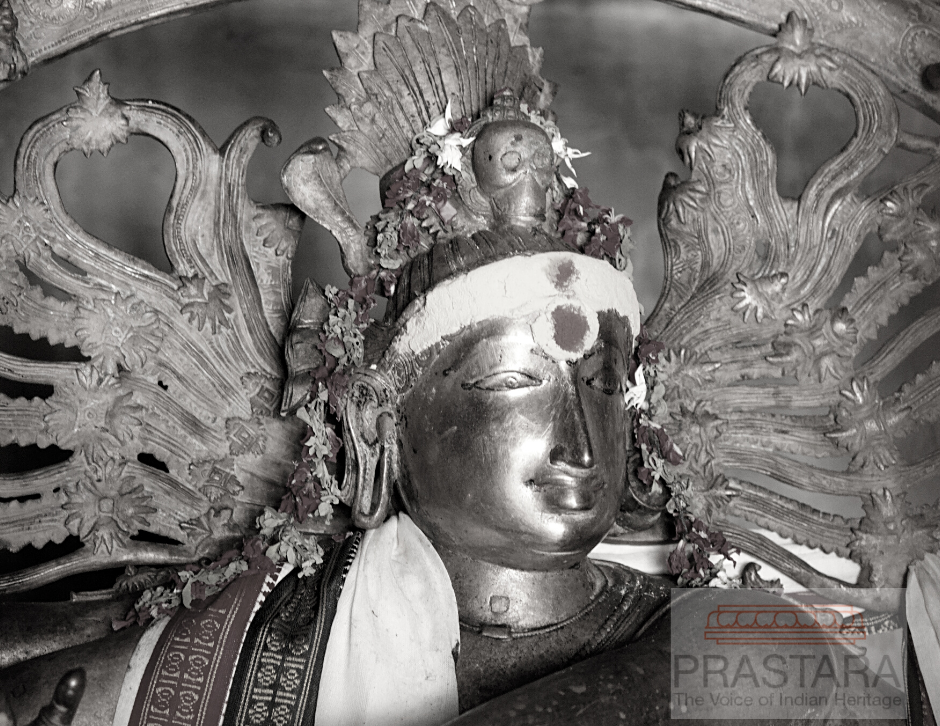Musical Traditions in Temples of Tamil Nadu - Odhuvars
- Jayakumar

- Nov 29, 2021
- 3 min read
Updated: Nov 30, 2021
In the last few months at Prastara, we have been tracing the historical aspects of music and performing arts traditions in the temples of Tamil Nadu. We have specifically been looking into the Saivite temples and the Panniru Thirumurai associated with them. The Panniru Thirumurai is a grand compilation of 12 volumes of hymns. It includes the Thevarams of Nayanmar saints, the works of Nambiyandar Nambi, and Sekkizhar’s Periya Puranam.
The term Panniru Thirumurai must have come to existence post-Sekkizhar’s Periya Puranam of the 12th century. The term first comes across in the 14th-century work of Umapthi Sivacharya’s ‘Sekkizhar Puranam’. The discovery of the Thevara hymns from the Tillai Natarajar Temple is attributed to a Chola king with the guidance of Nambiyandar Nambi of Thirunaraiyur. The identity of the Chola king remains ambiguous as we only have the title Thirumurai Kanda Cholan and there are no historical records from inscriptions or copper plates available for us to identify with one specific king. However, our focus is not on the discovery of the Thirumurai but the traditional musicians who have been singing these hymns for centuries. From the inscriptions dating back to the Pallavas, we learn about these musicians who are employed to sing the hymns of Appar, Sambandhar & Sundarar. It seems likely between the Pallava period and the Chola period, specifically prior to the episode of discovering the hymns, there must have been a time, though for a short while, that this tradition was obsolete for reasons unknown.

The community of musicians who have been reciting these verses is known as Odhuvars, a term that literally means reciter or chanter. The term today denotes the singers of Panniru Thirumurai and is much later origin but in earlier times, as cited in the inscriptions and copper plates, they were known as Thiruppadhika Vinnappam Seivar, or Padhikam Paaduvar which means musicians who sing the Panniru Thirumurai. The term Pidaran was also used to denote the temple musicians. The inscriptions of the Tanjore Brihadisvara temple mention the appointment of 48 Pidarans who sang the Thiruppadhikam in the temple. They were accompanied by two musicians on Udukkai and Maddhalam. Each of their names is suffixed with ‘Sivan’, a title to note that they have been initiated into the Saivite ritual traditions. The term ‘Thevara Nayagam’ is also found in the inscriptions to refer to these musicians.
‘Thevaram’ is also a term used to refer to the divine images of the Gods, therefore the musicians who sing in praise of the ‘Thevaram’ are known as ‘ Thevarathirku Thiruppadhikam Paaduvar’ (the musicians who sing for Thevaram).
These musicians are hereditary artists like the temple dancers and Nadaswaram & Tavil artists, these artists were patronized by the temples. In the later times, many schools were established to train the Odhuvars. These schools, established by Saivaite Mutts, are known as the Thevara Patasalas.
This continuing tradition of Panniru Thirumurai recitation of the Odhuvar community finds its faint resonance in the temple towns of Tamil Nadu. The fact is though, with a severe lack of funding, this tradition is slowly declining. Prastara is on a mission to revive the traditions in temples and work with these communities to develop sustainable models that provide financial security. We hope to succeed in this mission with the support and contributions of our well-wishers toward this indigenous age-old tradition of South India.
Written by
S Jayakumar
(Founder Trustee)
Support us in our initiatives, you can reach out to us at jayakumar@prastara.in or +91 9884013485. Donations can be sent through bank transfer to the below account: Prastara Charitable Trust | State Bank of India | Adyar SME Branch, Chennai Current A/c No. 33646223076 IFSC Code: SBIN0013361.





Comments